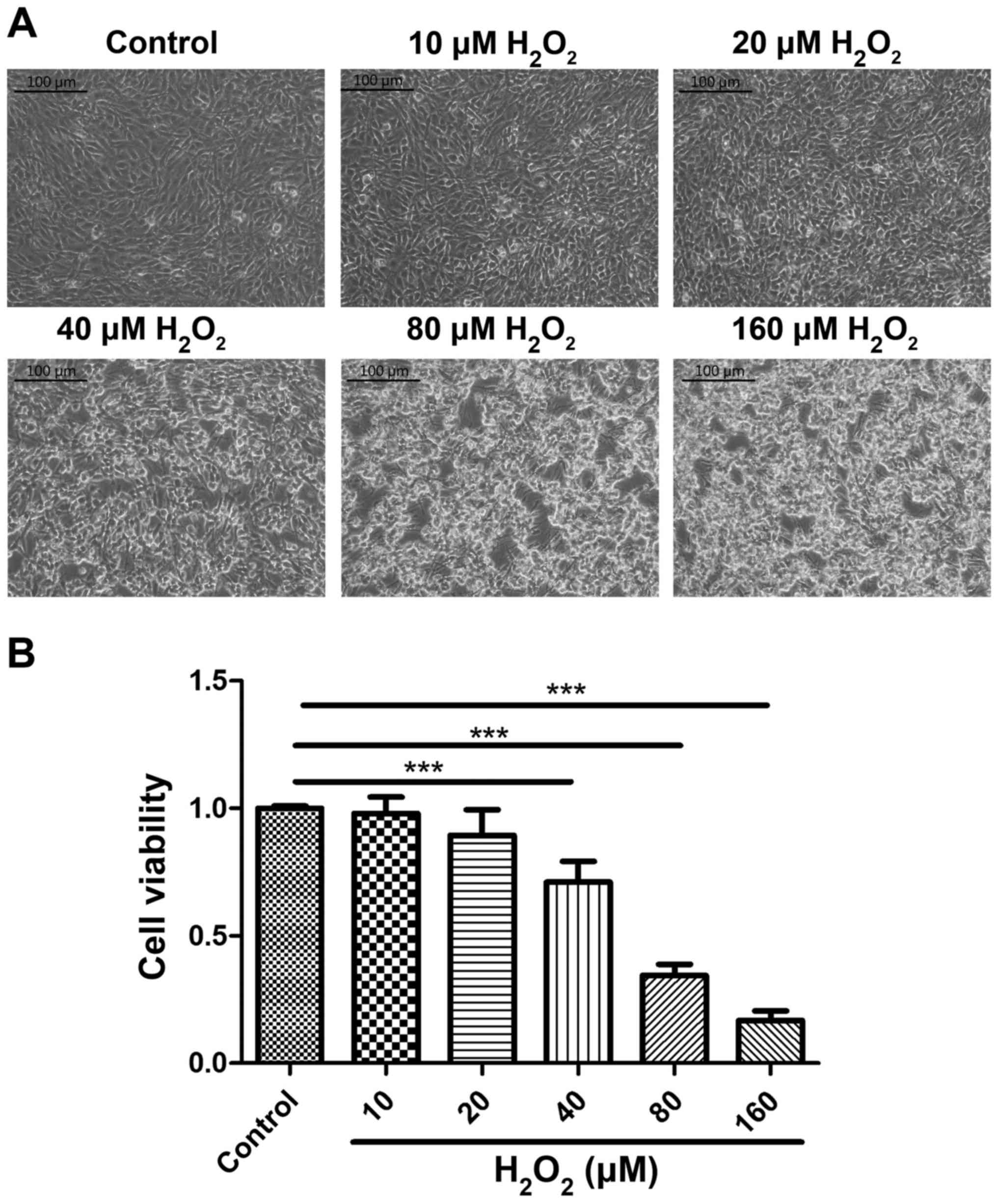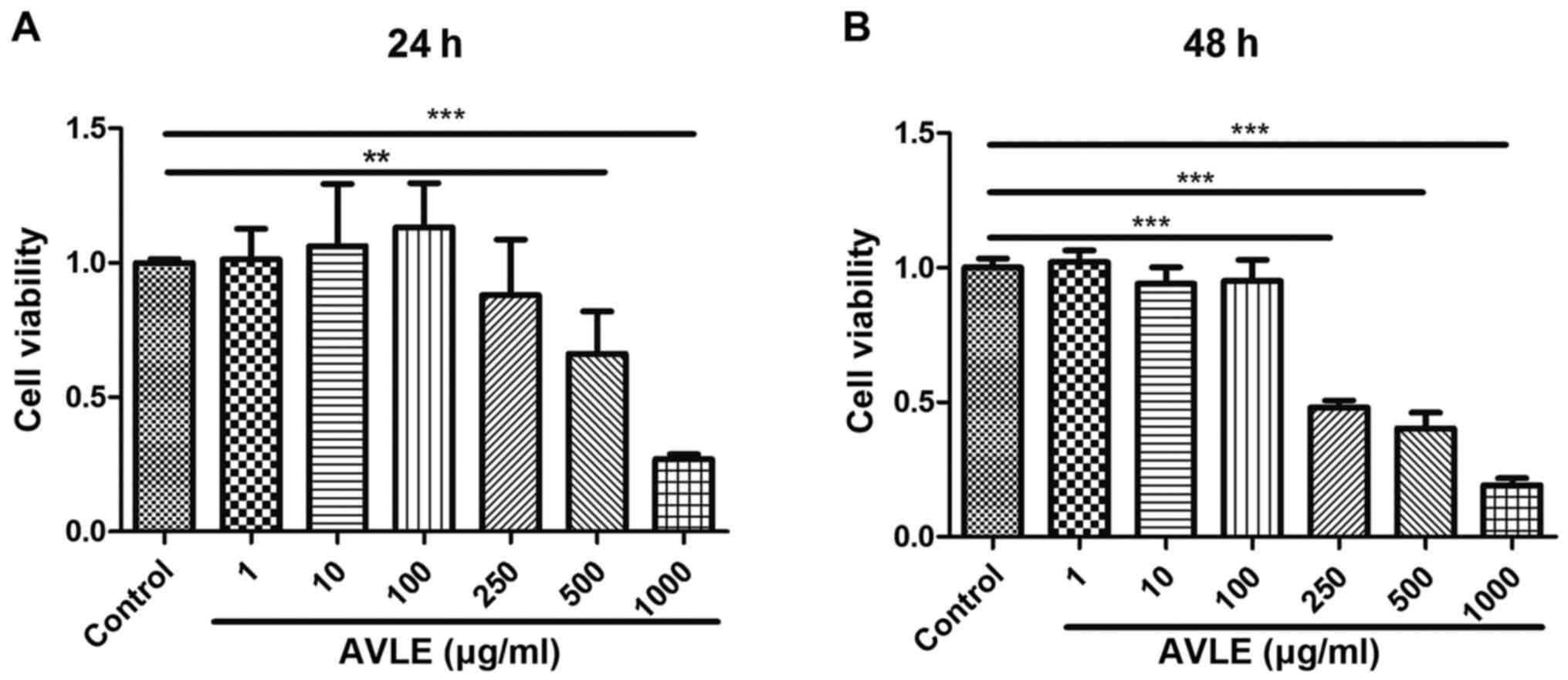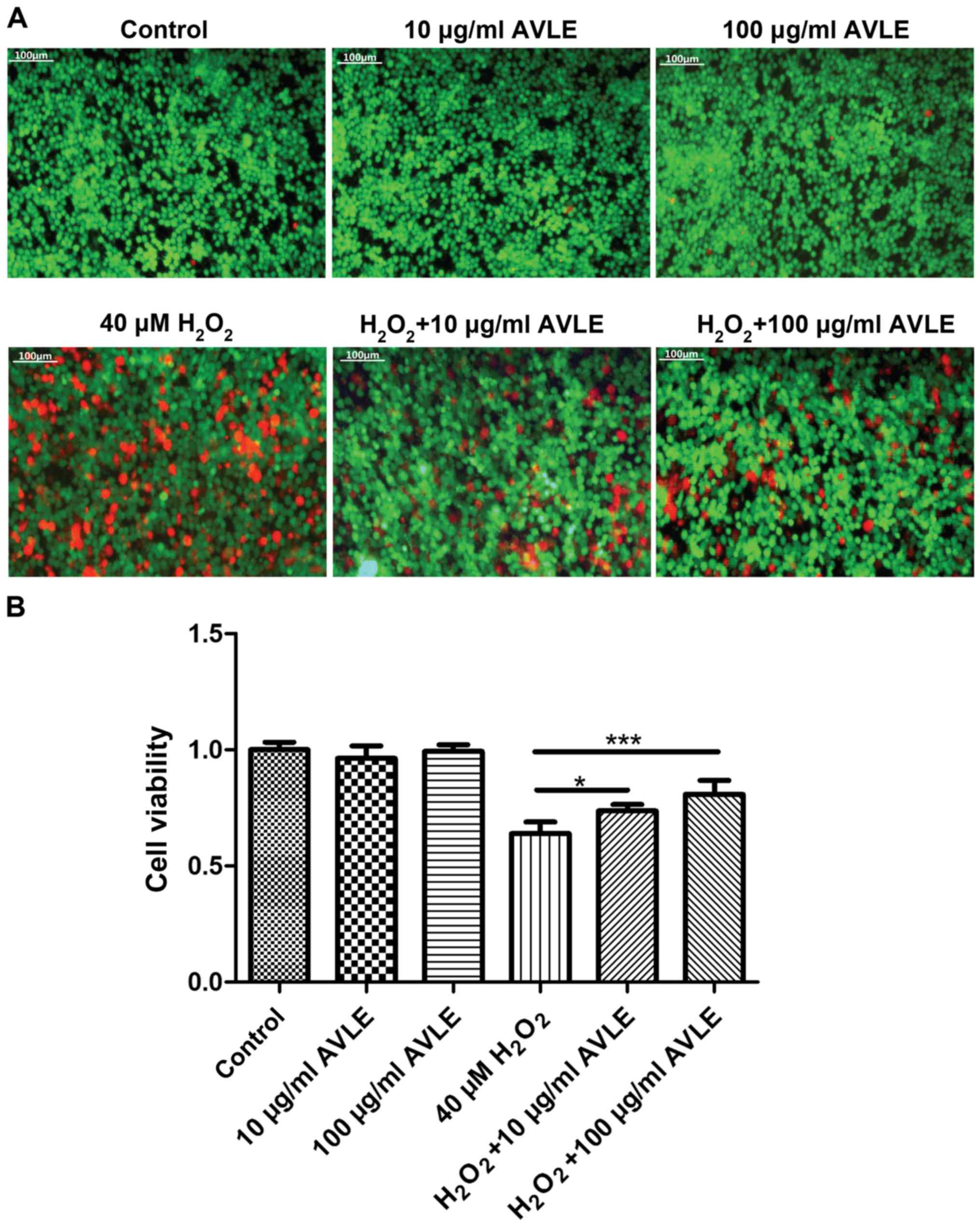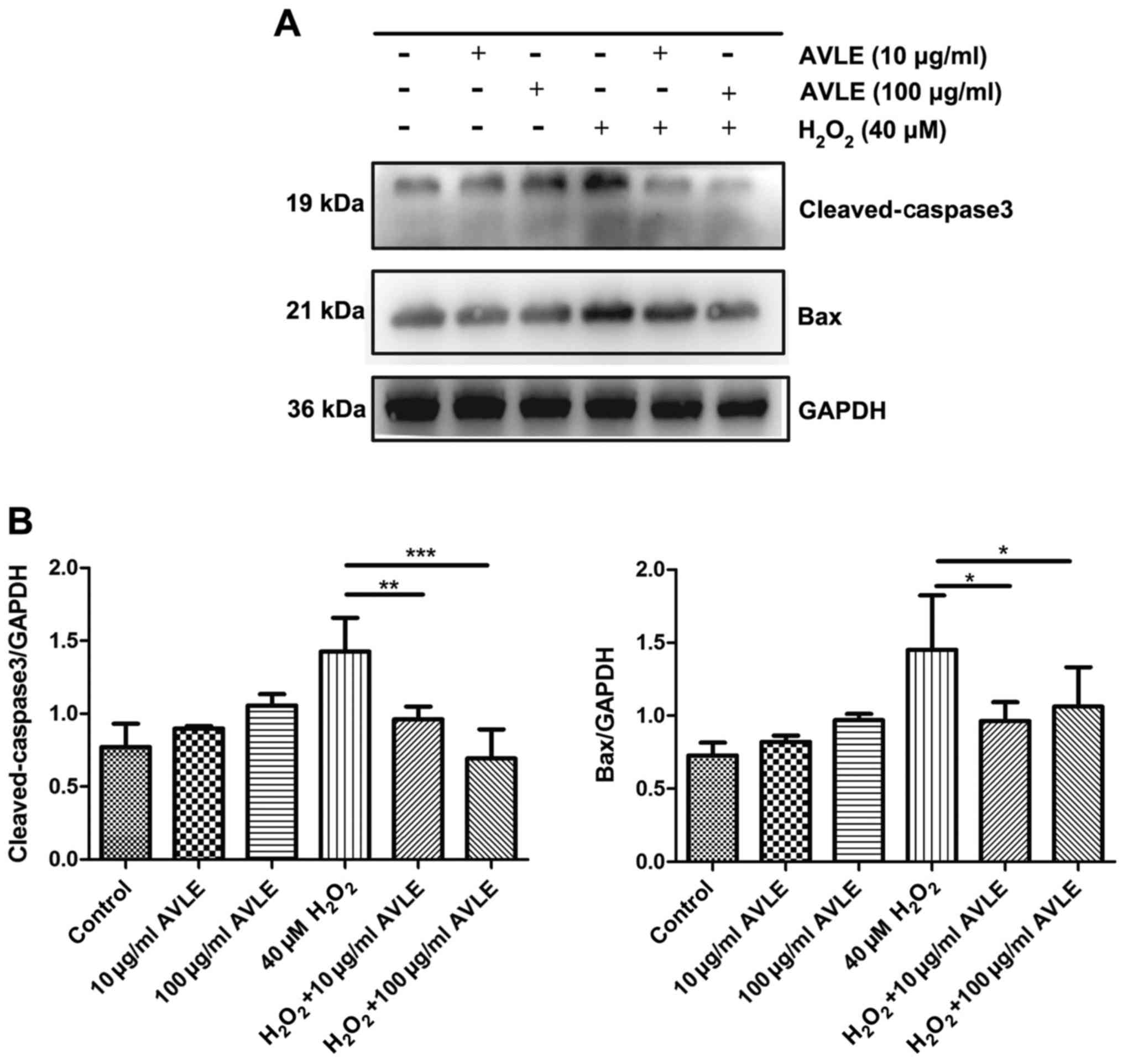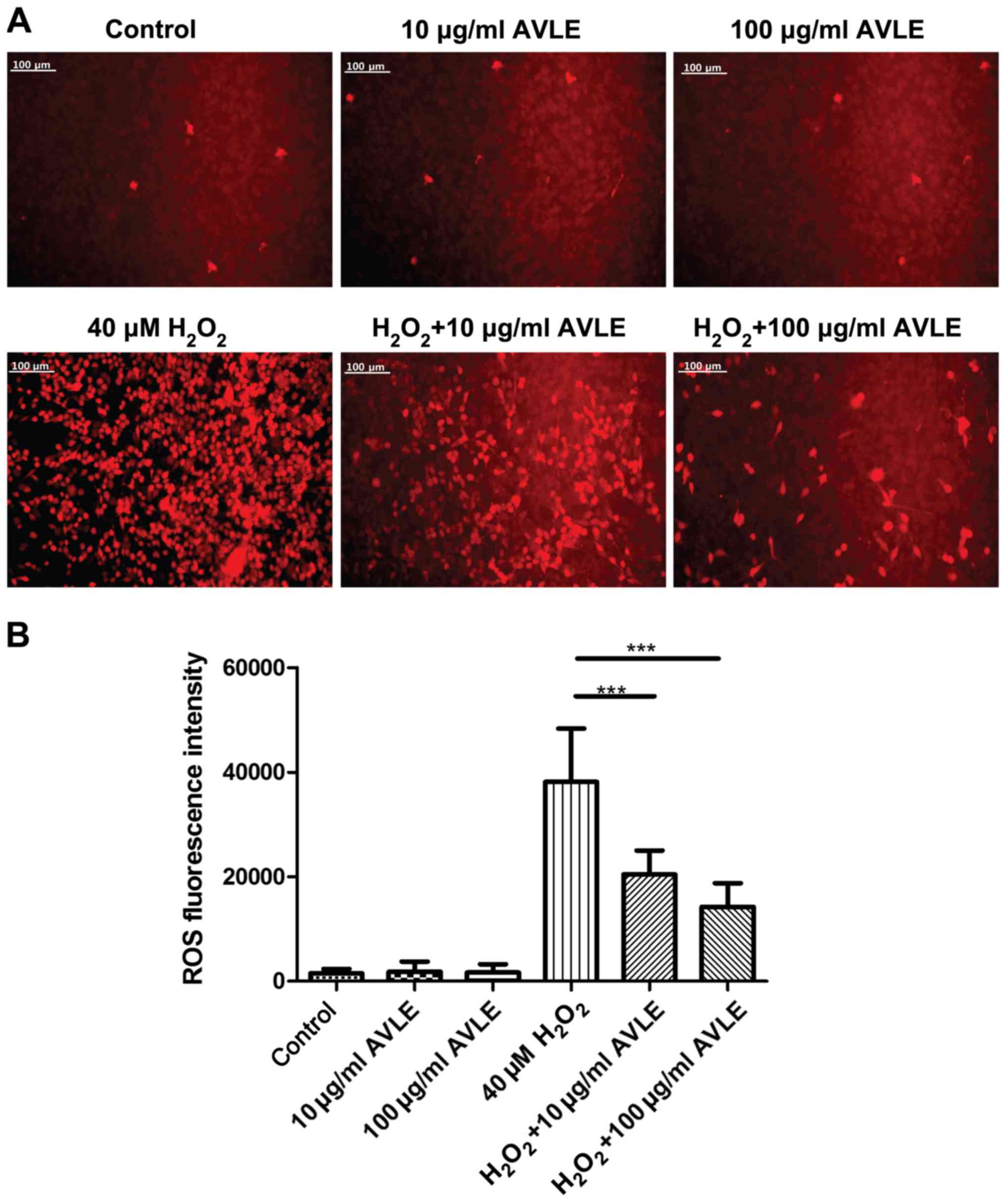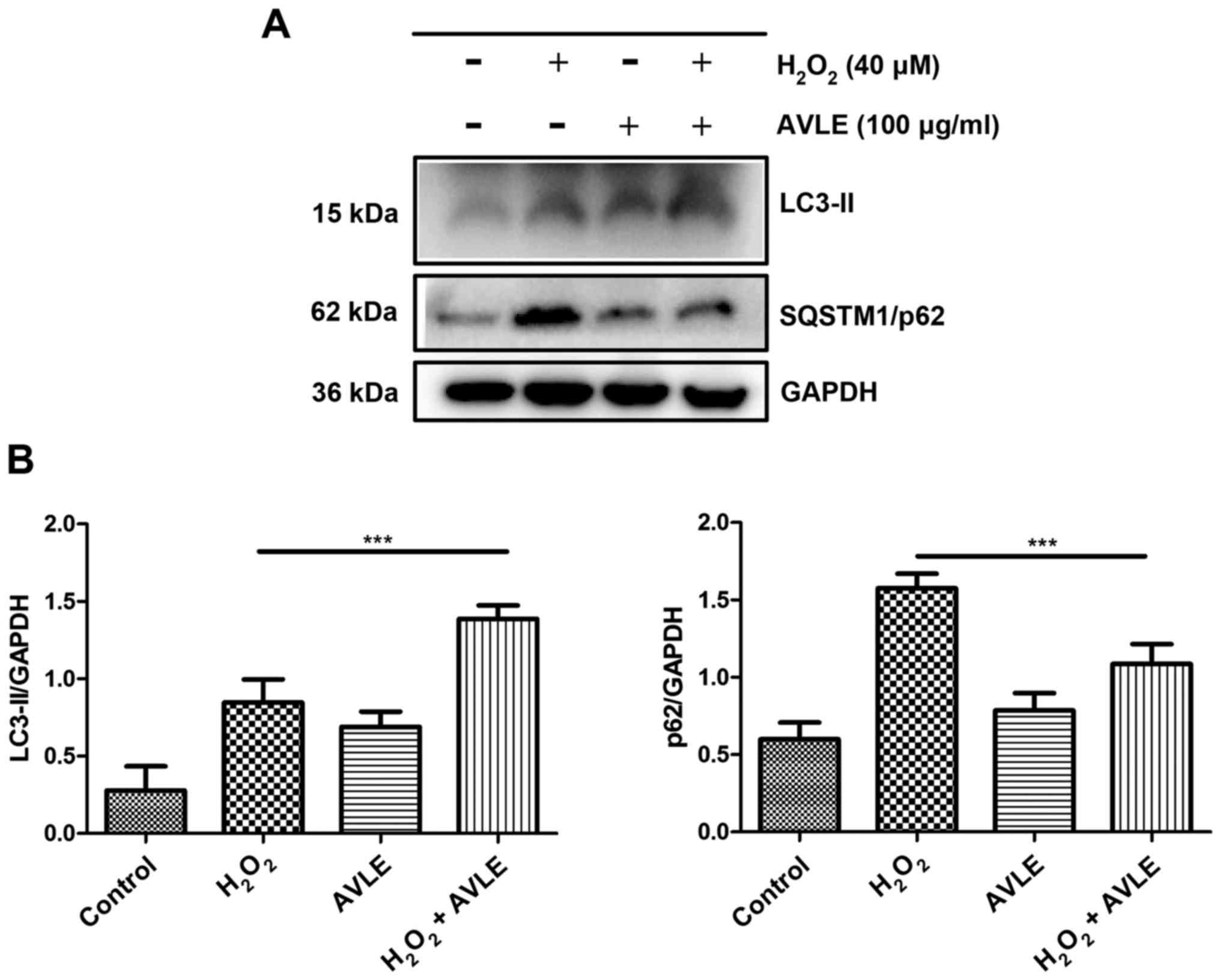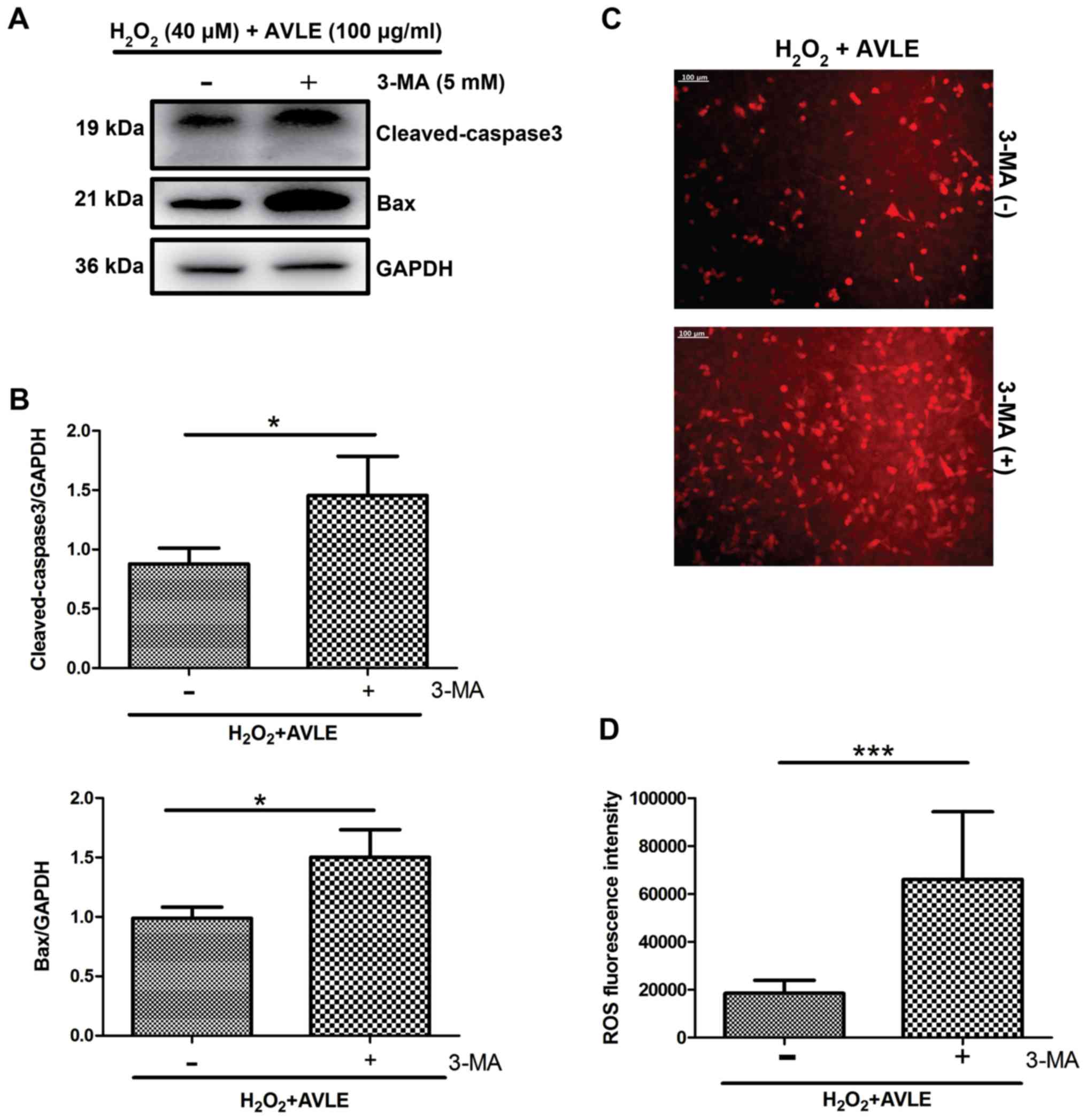|
1
|
Salim S: Oxidative stress and the central
nervous system. J Pharmacol Exp Ther. 360:201–205. 2017.PubMed/NCBI View Article : Google Scholar
|
|
2
|
Ratan RR: The chemical biology of
ferroptosis in the central nervous system. Cell Chem Biol: May 24,
2020 (Epub ahead of print). doi:
10.1016/j.chembiol.2020.03.007.
|
|
3
|
Islam MT: Oxidative stress and
mitochondrial dysfunction-linked neurodegenerative disorders.
Neurol Res. 39:73–82. 2017.PubMed/NCBI View Article : Google Scholar
|
|
4
|
Höhn A, Tramutola A and Cascella R:
Proteostasis failure in neurodegenerative diseases: Focus on
oxidative stress. Oxid Med Cell Longev.
2020(5497046)2020.PubMed/NCBI View Article : Google Scholar
|
|
5
|
Butterweck V, Nishibe S, Sasaki T and
Uchida M: Antidepressant effects of Apocynum venetum leaves
in a forced swimming test. Biol Pharm Bull. 24:848–851.
2001.PubMed/NCBI View Article : Google Scholar
|
|
6
|
Kobayashi M, Saitoh H, Seo S, Butterweck V
and Nishibe S: Apocynum venetum extract does not induce
CYP3A and P-glycoprotein in rats. Biol Pharm Bull. 27:1649–1652.
2004.PubMed/NCBI View Article : Google Scholar
|
|
7
|
Xie W, Zhang X, Wang T and Hu J: Botany,
traditional uses, phytochemistry and pharmacology of Apocynum
venetum L. (Luobuma): A review. J Ethnopharmacol. 141:1–8.
2012.PubMed/NCBI View Article : Google Scholar
|
|
8
|
Xiang J, Tang YP, Zhou ZY, Wu P, Wang Z,
Mori M and Cai DF: Apocynum venetum leaf extract protects
rat cortical neurons from injury induced by oxygen and glucose
deprivation in vitro. Can J Physiol Pharmacol. 88:907–917.
2010.PubMed/NCBI View Article : Google Scholar
|
|
9
|
Codogno P and Meijer AJ: Autophagy and
signaling: Their role in cell survival and cell death. Cell Death
Differ. 12 (Suppl 2):1509–1518. 2005.PubMed/NCBI View Article : Google Scholar
|
|
10
|
Radad K, Moldzio R, Al-Shraim M, Kranner
B, Krewenka C and Rausch WD: Recent advances in autophagy-based
neuroprotection. Expert Rev Neurother. 15:195–205. 2015.PubMed/NCBI View Article : Google Scholar
|
|
11
|
Wu D and Cederbaum AI: Inhibition of
autophagy promotes CYP2E1-dependent toxicity in HepG2 cells via
elevated oxidative stress, mitochondria dysfunction and activation
of p38 and JNK MAPK. Redox Biol. 1:552–565. 2013.PubMed/NCBI View Article : Google Scholar
|
|
12
|
Wang T, Wang Q, Song R, Zhang Y, Zhang K,
Yuan Y, Bian J, Liu X, Gu J and Liu Z: Autophagy plays a
cytoprotective role during cadmium-induced oxidative damage in
primary neuronal cultures. Biol Trace Elem Res. 168:481–489.
2015.PubMed/NCBI View Article : Google Scholar
|
|
13
|
Menzies FM, Fleming A, Caricasole A, Bento
CF, Andrews SP, Ashkenazi A, Füllgrabe J, Jackson A, Jimenez
Sanchez M, Karabiyik C, et al: Autophagy and neurodegeneration:
Pathogenic mechanisms and therapeutic opportunities. Neuron.
93:1015–1034. 2017.PubMed/NCBI View Article : Google Scholar
|
|
14
|
Chen Z, Li Z, Jiang C, Jiang X and Zhang
J: MiR-92b-3p promotes neurite growth and functional recovery via
the PTEN/AKT pathway in acute spinal cord injury. J Cell Physiol.
234:23043–23052. 2019.PubMed/NCBI View Article : Google Scholar
|
|
15
|
Li X, Wu T, Yu Z, Li T, Zhang J, Zhang Z,
Cai M, Zhang W, Xiang J and Cai D: Apocynum venetum leaf
extract reverses depressive-like behaviors in chronically stressed
rats by inhibiting oxidative stress and apoptosis. Biomed
Pharmacother. 100:394–406. 2018.PubMed/NCBI View Article : Google Scholar
|
|
16
|
Xiang J, Lan R, Tang YP, Chen YP and Cai
DF: Apocynum venetum leaf extract attenuates disruption of
the blood-brain barrier and upregulation of matrix
metalloproteinase-9/-2 in a rat model of cerebral
ischemia-reperfusion injury. Neurochem Res. 37:1820–1828.
2012.PubMed/NCBI View Article : Google Scholar
|
|
17
|
Scholpa NE and Schnellmann RG:
Mitochondrial-based therapeutics for the treatment of spinal cord
injury: Mitochondrial biogenesis as a potential pharmacological
target. J Pharmacol Exp Ther. 363:303–313. 2017.PubMed/NCBI View Article : Google Scholar
|
|
18
|
Wang W, Liang X, Fu D, Tie R, Xing W, Ji
L, Liu F, Zhang H and Li R: Apocynum venetum leaf attenuates
myocardial ischemia/reperfusion injury by inhibiting oxidative
stress. Am J Chin Med. 43:71–85. 2015.PubMed/NCBI View Article : Google Scholar
|
|
19
|
Jabbour E, Ottmann OG, Deininger M and
Hochhaus A: Targeting the phosphoinositide 3-kinase pathway in
hematologic malignancies. Haematologica. 99:7–18. 2014.PubMed/NCBI View Article : Google Scholar
|
|
20
|
Slimen IB, Najar T, Ghram A, Dabbebi H,
Ben Mrad M and Abdrabbah M: Reactive oxygen species, heat stress
and oxidative-induced mitochondrial damage. A review. Int J
Hyperthermia. 30:513–523. 2014.PubMed/NCBI View Article : Google Scholar
|
|
21
|
Sinha K, Das J, Pal PB and Sil PC:
Oxidative stress: The mitochondria-dependent and
mitochondria-independent pathways of apoptosis. Arch Toxicol.
87:1157–1180. 2013.PubMed/NCBI View Article : Google Scholar
|
|
22
|
Mi Y, Xiao C, Du Q, Wu W, Qi G and Liu X:
Momordin Ic couples apoptosis with autophagy in human
hepatoblastoma cancer cells by reactive oxygen species
(ROS)-mediated PI3K/Akt and MAPK signaling pathways. Free Radic
Biol Med. 90:230–242. 2016.PubMed/NCBI View Article : Google Scholar
|
|
23
|
Portal-Nunez S, Esbrit P, Alcaraz MJ and
Largo R: Oxidative stress, autophagy, epigenetic changes and
regulation by miRNAs as potential therapeutic targets in
osteoarthritis. Biochem Pharmacol. 108:1–10. 2016.PubMed/NCBI View Article : Google Scholar
|
|
24
|
Yuan H, Perry CN, Huang C, Iwai-Kanai E,
Carreira RS, Glembotski CC and Gottlieb RA: LPS-induced autophagy
is mediated by oxidative signaling in cardiomyocytes and is
associated with cytoprotection. Am J Physiol Heart Circ Physiol.
296:H470–H479. 2009.PubMed/NCBI View Article : Google Scholar
|
|
25
|
Cho B, Kim T, Huh YJ, Lee J and Lee YI:
Amelioration of mitochondrial quality control and proteostasis by
natural compounds in Parkinson's disease models. Int J Mol Sci.
20(E4208)2019.PubMed/NCBI View Article : Google Scholar
|
|
26
|
Sebori R, Kuno A, Hosoda R, Hayashi T and
Horio Y: Resveratrol decreases oxidative stress by restoring
mitophagy and improves the pathophysiology of dystrophin-deficient
mdx mice. Oxid Med Cell Longev. 2018(9179270)2018.PubMed/NCBI View Article : Google Scholar
|
|
27
|
Guo S, Long M, Li X, Zhu S, Zhang M and
Yang Z: Curcumin activates autophagy and attenuates oxidative
damage in EA.hy926 cells via the Akt/mTOR pathway. Mol Med Rep.
13:2187–2193. 2016.PubMed/NCBI View Article : Google Scholar
|
|
28
|
Sun H, Wang Z and Yakisich JS: Natural
products targeting autophagy via the PI3K/Akt/mTOR pathway as
anticancer agents. Anticancer Agents Med Chem. 13:1048–1056.
2013.PubMed/NCBI View Article : Google Scholar
|
|
29
|
Ichimura Y, Kirisako T, Takao T, Satomi Y,
Shimonishi Y, Ishihara N, Mizushima N, Tanida I, Kominami E, Ohsumi
M, et al: A ubiquitin-like system mediates protein lipidation.
Nature. 408:488–492. 2000.PubMed/NCBI View Article : Google Scholar
|
|
30
|
Kabeya Y, Mizushima N, Ueno T, Yamamoto A,
Kirisako T, Noda T, Kominami E, Ohsumi Y and Yoshimori T: LC3, a
mammalian homologue of yeast Apg8p, is localized in autophagosome
membranes after processing. EMBO J. 19:5720–5728. 2000.PubMed/NCBI View Article : Google Scholar
|
|
31
|
Sekiguchi A, Kanno H, Ozawa H, Yamaya S
and Itoi E: Rapamycin promotes autophagy and reduces neural tissue
damage and locomotor impairment after spinal cord injury in mice. J
Neurotrauma. 29:946–956. 2012.PubMed/NCBI View Article : Google Scholar
|
|
32
|
Zhang D, Xuan J, Zheng BB, Zhou YL, Lin Y,
Wu YS, Zhou YF, Huang YX, Wang Q, Shen LY, et al: Metformin
improves functional recovery after spinal cord injury via autophagy
flux stimulation. Mol Neurobiol. 54:3327–3341. 2017.PubMed/NCBI View Article : Google Scholar
|
|
33
|
Kamata K, Seo S and Nakajima J:
Constituents from leaves of Apocynum venetum L. J Nat Med.
62:160–163. 2008.PubMed/NCBI View Article : Google Scholar
|
|
34
|
Song RJ and Zhou J: Microemulsion liquid
chromatographic method for simultaneous separation and
determination of six flavonoids of Apocynum venetum leaf
extract. J Chromatogr B Analyt Technol Biomed Life Sci.
995-996:8–14. 2015.PubMed/NCBI View Article : Google Scholar
|
|
35
|
Hao XL, Kang Y, Li JK, Li QS, Liu EL and
Liu XX: Protective effects of hyperoside against H2O2-induced
apoptosis in human umbilical vein endothelial cells. Mol Med Rep.
14:399–405. 2016.PubMed/NCBI View Article : Google Scholar
|
|
36
|
Liu Z, Tao X, Zhang C, Lu Y and Wei D:
Protective effects of hyperoside (quercetin-3-o-galactoside) to
PC12 cells against cytotoxicity induced by hydrogen peroxide and
tert-butyl hydroperoxide. Biomed Pharmacother. 59:481–490.
2005.PubMed/NCBI View Article : Google Scholar
|
|
37
|
Rashidi Z, Aleyasin A, Eslami M, Nekoonam
S, Zendedel A, Bahramrezaie M and Amidi F: Quercetin protects human
granulosa cells against oxidative stress via thioredoxin system.
Reprod Biol. 19:245–254. 2019.PubMed/NCBI View Article : Google Scholar
|
|
38
|
Xiao HB, Lu XY, Liu ZK and Luo ZF:
Kaempferol inhibits the production of ROS to modulate OPN-αvβ3
integrin pathway in HUVECs. J Physiol Biochem. 72:303–313.
2016.PubMed/NCBI View Article : Google Scholar
|
|
39
|
Lu L, Zhang D, Sun B, Hu Y, Yan M, Liu K,
Li X and Ren L: Apocynum leaf extract inhibits the progress
of atherosclerosis in rats via the AMPK/mTOR pathway. Pharmazie.
72:41–48. 2017.PubMed/NCBI View Article : Google Scholar
|















